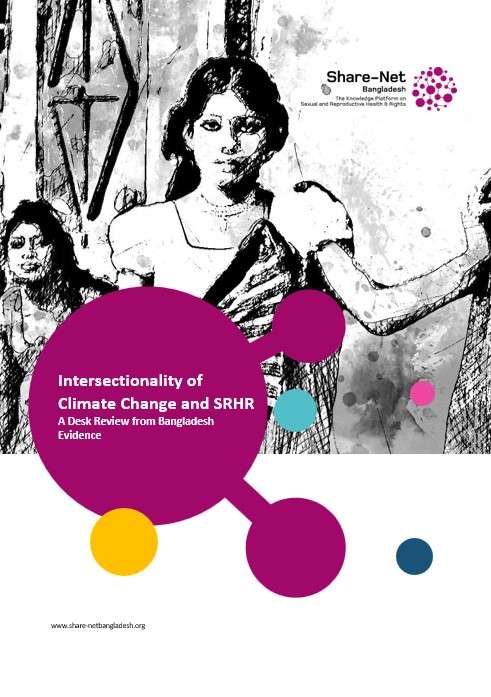Intersectionality of Climate Change and SRHR: A Desk Review from Bangladeshi Evidence
Both the public and private sectors of Bangladesh’s healthcare system lack the full range of SRH services in terms of gender, equity, and rights. The spectrum scarcely addresses any of the SRHR components when it is further connected to climate change. The system offers very limited services, such as those for maternal care, child care, contraception-related services, etc. Contrarily, those limited services are once again exclusively available to heterosexual couples and married individuals.
Because of this, the general public has come to believe that SRH services are extremely limited, which is false. Therefore, the SRHR services for various categories of individuals, such youth, single people, and persons with sexual orientations and gender identities, continue to be mainly disregarded and unaddressed within the current service delivery and legislation. Climate Change and its direct and indirect links to SRHR in the context of Bangladesh now make it more complicated.
The pandemic outbreak in Bangladesh has significantly disrupted SRH services for women and girls, and the public health response to SRHR has lost priority as the entire health system is obstructed from responding to the pandemic’s urgency. Domestic and gender-based violence, child marriages, and mental health issues all rose sharply during this chaotic period.
In this desk study, we seek to comprehend the relationship between SRHR and Climate Change and evaluate the effectiveness, affordability, and accessibility of SRH services for women and adolescent girls in climate-affected locations. In order to support SRHR in Bangladesh, we are also attempting to suggest a strategy for building a future-proof health system.
Download Desk Review on Intersectionality of Climate Change & SRHR
